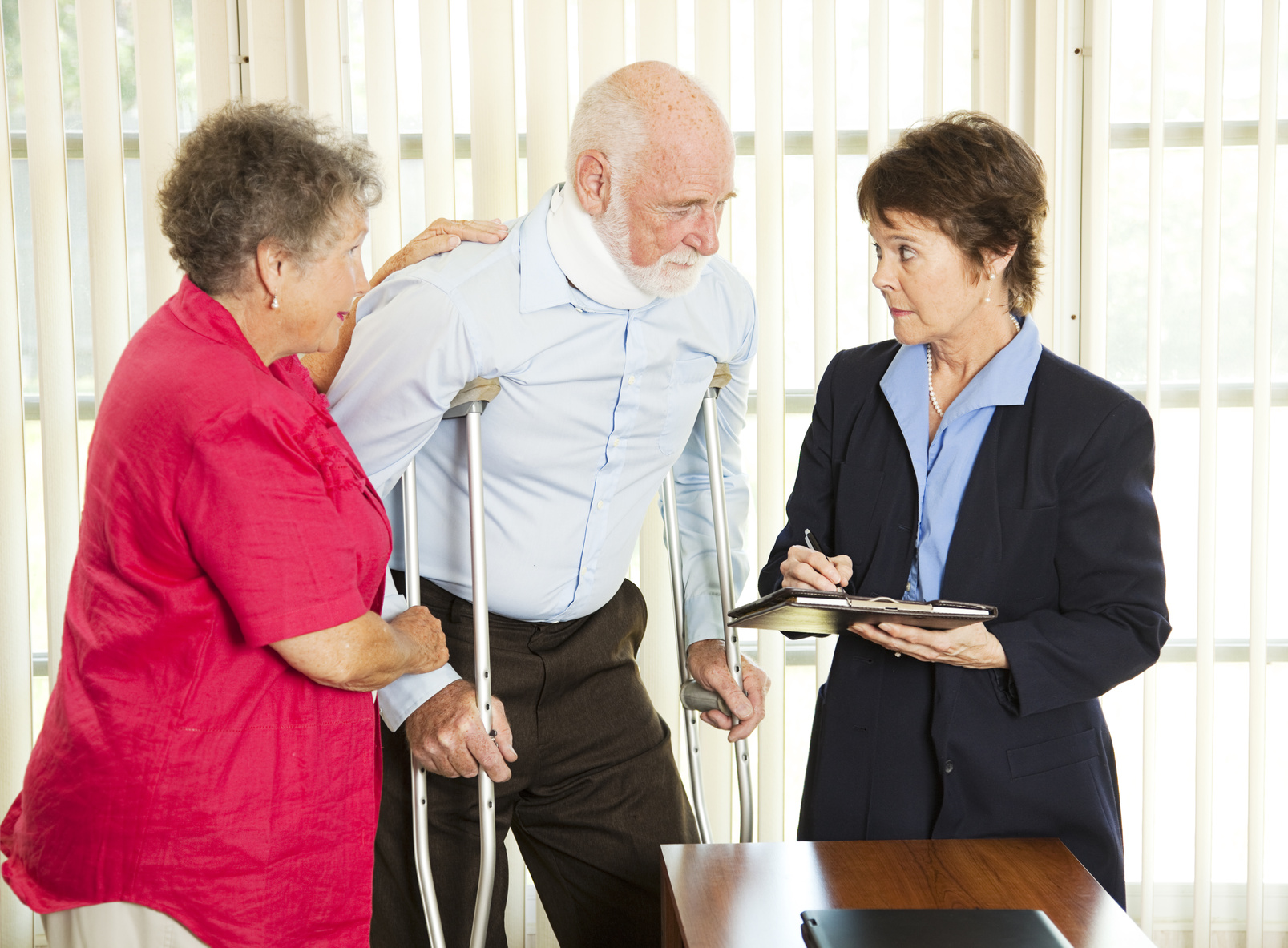A settlement can end a personal injury case fairly quickly. In fact, in most personal injury settlements, the case is finalized within one to six weeks. However, the process is complex and relies heavily on various factors, such as the ones that follow.
It’s important to recognize the different types of lawsuit settlements. Personal injury cases occur after the victim is injured as a result of the careless actions of another person. A civil case is filed by the plaintiff in an effort to receive compensation for medical expenses from the offender’s insurer.
The severity of the victim’s injuries determines the amount of compensation awarded. Typically, lawsuit settlements can range from low to substantial. An average personal injury settlement ranges from $3,000 to $75,000 but depends largely on circumstances surrounding the individual case.
What are different types of personal injury cases?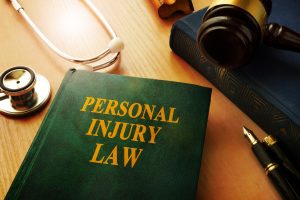
A lawsuit settlement may involve vehicles. The verdict in car accidents depends on the type of car and the severity of damages sustained. The condition of the vehicle also influences the amount of compensation awarded. Damaged property is repaired using the money from the settlement.
Personal injuries may occur when individuals accidentally slip and fall on slick surfaces. Hazardous, wet floors are found in workplaces or general stores. Tripping over objects on the floor can also lead to a legal case in which the lawyer attempts to obtain funds to cover the plaintiff’s medical expenses.
A class action lawsuit settlement involves many people who have been harmed by the wrongful actions of a manufacturer, retailer, financial institution, or government entity. The plaintiff in such a class action lawsuit usually lacks the financial power to pursue legal actions individually.
What are the various types of settlements?
A personal injury case can fall into either of two categories: formal settlement or informal settlement. A judge decides whether or not the defendant is guilty during a formal settlement. Restitution is often a large sum in such cases, or the benefit may be worth more than a monetary award.
During an informal settlement, both parties negotiate and arrive at an agreement prior to the case going to trial. A written agreement in which both parties agree to not pursue further legal actions follows. The case is ultimately resolved with an agreed-upon monetary sum.
The type of settlement influences how soon a plaintiff will receive compensation. The entire settlement may be paid in one lump sum, which is known as a lump sum settlement. Most personal injury cases are settled via this basic form of settlement. All the money is paid without a wait.
Structured settlements, however, allow the defendant to compensate the plaintiff in a series of payments. The annuity plan may continue for years or even a lifetime. Inflation may increase each payment in structured settlements, or the payments may decrease as medical expenses lessen.
What additional factors influence the timing of payments?
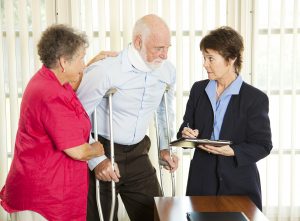 After both parties sign the settlement agreement, the insurance company in a personal injury case will remit compensation. The legal documents must be filed appropriately in order to protect the plaintiff in the future. Only once the process is satisfactorily complete will the plaintiff be paid.
After both parties sign the settlement agreement, the insurance company in a personal injury case will remit compensation. The legal documents must be filed appropriately in order to protect the plaintiff in the future. Only once the process is satisfactorily complete will the plaintiff be paid.
Once the lawyer receives the settlement check, it is temporarily placed into an escrow account or trust. The plaintiff’s attorney will pay any unpaid medical bills, health insurance fees related to the accident or auto debts using the settlement check received.
Then the court and legal fees must be paid. Court fees include the costs to file the settlement, to compel witness participation, for court appointed experts and for miscellaneous expenses, such as transcripts and document copying. Once all the aforementioned fees are paid, the plaintiff receives the rest.
Delays in the receipt of settlement compensation may also be due to the day of the week the payment is remitted. Weekends and holidays can delay payment, as funds are normally distributed on business days. Banks may also hold large sums for several days to ensure the deposit is lawful.
In most cases, compensation from settlements is received within six weeks after negotiations complete. Any extensive delays should be discussed with the personal injury attorney handling the case. The attorney should explain the reason for the delay and can help resolve any issues.
Work with a Personal Injury Attorney
The personal injury lawyer can also work to expedite the payment due. A partial settlement payment may be an option as the attorney negotiates existing liens. In such instances, the lawyer will retain a portion of the settlement proceeds during the course of negotiations.
Personal injury lawsuits are complicated processes. Without an experienced personal injury attorney to provide legal representation, a plaintiff is potentially subject to frustrating delays in receiving compensation, the forfeiture of critical rights and an undervaluation of the personal injury case.
When you are the victim of a personal injury, such as a slip and fall accident, nursing home abuse or birth injury, you deserve expert legal representation to ensure you receive fair compensation. The personal injury attorneys at Berry K. Tucker & Associates, Ltd. will help file your claim in a timely manner.
Our personal injury lawyers are knowledgeable in all facets of Illinois law. We’ve successfully won cases when clients were involved in bicycle accidents, car accidents and construction accidents. Our experience also ranges from medical malpractice to wrongful death and workers’ compensation.
The family law attorneys at Berry K. Tucker & Associates, Ltd. are also available when you fail to receive the alimony or child support to which you are entitled. Our divorce attorneys provide sound legal counsel and guidance in matters involving property division and prenuptial and postnuptial agreements.
Call for a Consultation
The highly competent attorneys at Berry K. Tucker & Associates, Ltd. provide comprehensive legal representation, whether you are injured and are burdened with expensive medical bills or are pursuing a difficult divorce. Our firm serves residents in Oak Lawn, Illinois.
Call our office at (708) 425-9530 for a consultation.




 According to a report published by Governors Highway Safety Association in 2018, 6,277 pedestrians died in the accident. Since 2008, pedestrian fatalities have increased by 41%, which is 16% of all fatalities that occur in traffic accidents.
According to a report published by Governors Highway Safety Association in 2018, 6,277 pedestrians died in the accident. Since 2008, pedestrian fatalities have increased by 41%, which is 16% of all fatalities that occur in traffic accidents.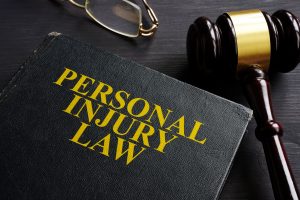 But first, it is best that you understand the basics of personal injury.
But first, it is best that you understand the basics of personal injury.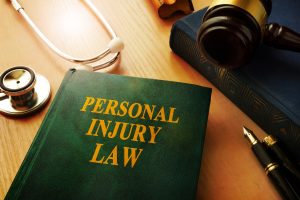 After an injury, someone may believe that they have a case but often find it difficult to find an attorney who will accept their case.
After an injury, someone may believe that they have a case but often find it difficult to find an attorney who will accept their case.


